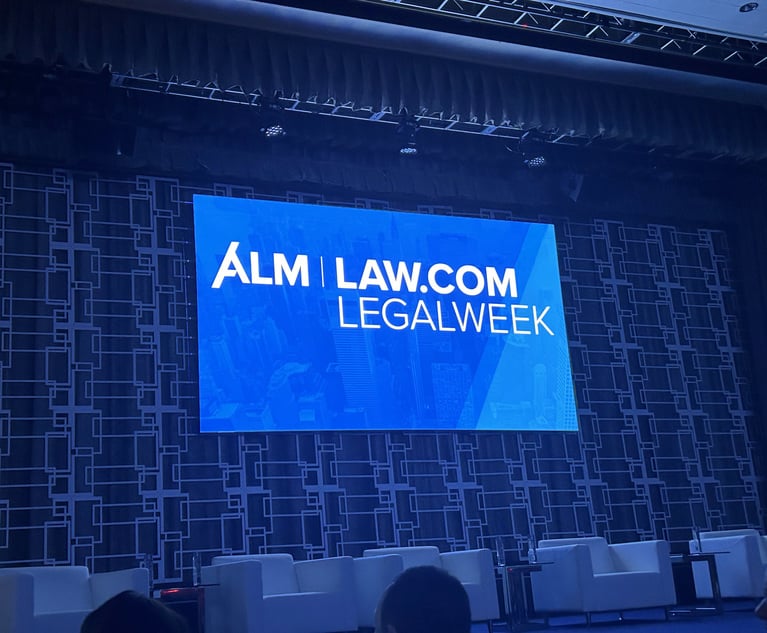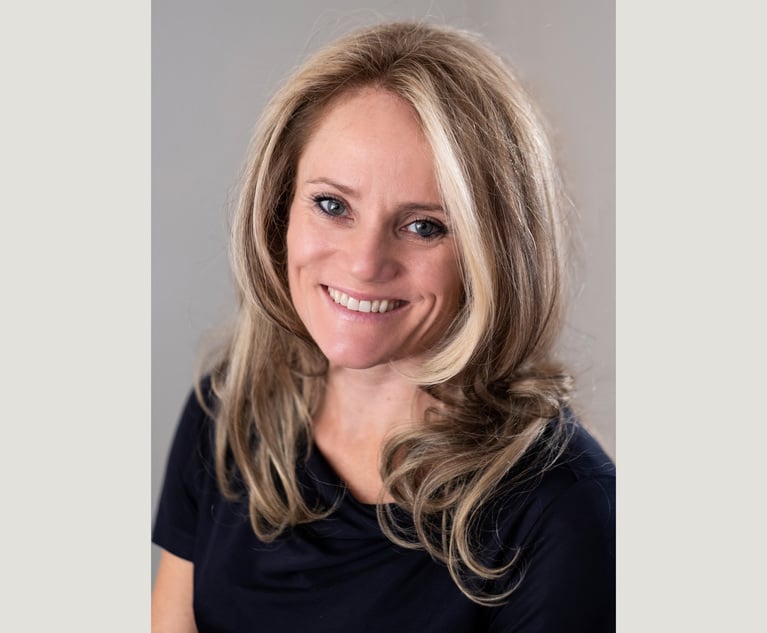In addition to his day job, Solender is passionate about mentoring and supporting the next generation of legal professionals and has taught for a decade at Yale, Columbia and Harvard law schools.
Below Solender spoke to Corporate Counsel Advance about what inspires him as an executive leader, and how he is equipping future leaders with a succession program. He also discussed the ESG agenda, strategies to ensure the in-house department collaborates with the wider business function, and the qualities of a successful general counsel.
Corporate Counsel Advance: We are seeing an increasing number of general counsel leading the charge with ESG. Why do you think we are seeing this trend?
Michael Solender: I have been teaching at law schools for the past 13 years and I have sometimes noticed a disconnect between the subjects of interest there and in the business world. ESG was a big subject at law schools 10 years ago but it had not yet really penetrated business in a meaningful way. For me, it has been interesting to watch this topic evolve over the last decade and today it has become a very big issue for businesses. Our CEO, Carmine Di Sibio, in particular is very interested in this area, he is a true leader on ESG as it has been a key theme for him.
The general counsel should play a role in driving the ESG agenda; I have certainly advised our leadership on the initiatives many times. However, the general counsel’s role will vary depending on which of the three components you are referring to (environmental, social, or governance) as they all have varying legal dimensions.
CCA: What role can the GC play in shaping the purpose of an organization?
Solender: Our prior CEO, Mark Weinberger, was a pioneer on the topic and developed a very specific purpose for EY, striving to build a better working world.
I believe there is a generational component to the appeal of a purpose of an organisation. Our business has a very young workforce who are exceptionally motivated by the purpose of an organization and the role they can play in achieving that purpose. It is an essential part of hiring great talent, and the younger generation has come to expect more from the organizations they work for.
As a general counsel, the role of the in-house legal department is to support the wider purpose of the business. When I am talking to my team, I always tell them that our job is twofold. We need to protect the franchise whilst enabling it to do business, and this is one way in which we can further the purpose of the organization.
CCA: How are you equipping your future leaders, do you have a succession plan?
Solender: We have a formal succession program that is carried out throughout the organisation. I meet annually with leadership and those who are responsible for succession and the planning process enables us to always have someone in mind for a role.
For me, mentoring is so important and is one of the main reasons that I have taught for over a decade at Yale, Columbia and Harvard law schools. One of the reasons I like to teach is that I don’t have much contact through the regular hiring process with those who are of student age – the lawyers we hire are generally very experienced. Teaching and mentoring allows me to stay connected with the next generation the legal profession. Over the years, I have developed long term relationships with some of my students, and I am pleased to say that last year one of them became a general counsel herself!
CCA: What inspires you as an executive leader?
Solender: My inspiration has evolved over the years depending on my role. Currently, I am inspired by how global our business and the working world has become. When I first started practicing law, it was viewed as exciting when you dealt with a case that was based in New York and crossed state lines. As a young lawyer, I would never have thought I would have the opportunity to participate in, for example, a trial in Hong Kong, a regulatory matter in Germany, or a merger in Brazil. In the past 10 years, through the advance of technology, our practices have become truly global. I find it fascinating to immerse myself in different cultures, legal systems, people and histories. The diverse nature of our international global practice keeps me excited and fascinated by my job.
CCA: How can the GC add true value to the organization, and step out of the legal box to become a strategic business partner?
Solender: A successful general counsel will have a relationship with the CEO and leadership team that should lead them to want to receive their general counsel’s advice on a whole range of issues, including those that are not strictly about legal concerns. The most important questions that you receive are a mix of business, law, policy, politics, international culture, ethics and PR. The best in-house lawyers are those that can factor all of those dimensions into the advice that they offer. To succeed, you need to be a partner to the business which requires learning, studying and seeking experiences in a range of dimensions beyond the pure practice of law. The best general counsels I have seen are the ones that can synthesize all of their experience and bring it to bear in the advice they give.
CCA: How do you ensure the legal department collaborates with the wider business functions and is not viewed as sitting in its ‘ivory tower’?
Solender: One of our priorities is to make sure that we are connected to the businesses. When I teach, we often look at case studies from the “train-wrecks” of the business world, and a lot of the time one of the main problems was a lack of communication between the legal function and the rest of the organization; The legal departments were siloed without a line of sight into where the problems were.
I try to ensure my legal departments are not siloed by attending all of our global board meetings, and then somebody from legal will attend every board meeting in their jurisdiction so that we have visibility into all of the discussions and issues. At EY we have four business services lines and I meet with the leadership of each of those service lines regularly, I meet quarterly with every one of our regional general counsels, and I have a weekly meeting with all of my Deputies. With the help of technology, you can easily connect with people around the world to ensure you keep that line of sight on the issues.
CCA: If you could just take a moment to be retrospective, looking back over the last year, what has been the biggest challenge?
Solender: The year has been dominated by the pandemic which has created a lot of challenges. We are in uncharted crisis territory, which makes it both challenging and interesting as you have to confront issues and questions that nobody has confronted before. The challenges this year have been immense, particularly the human dimension. We are now running a nearly fully virtual workforce, which creates issues around connectivity, morale and engagement.
CCA: Do you think we will see any permanent changes in the way we work?
Solender: Rapid and abrupt disruption often brings about evolutionary change rather than revolutionary change. I think we will see an increased acceptance of virtual and remote working, but there will be a continued need and desire to be a part of a workforce with a physical presence, and businesses will want to have a physical presence to accommodate that. I predict that we will see a hybrid working environment with a greater acceptance of connecting electronically, and perhaps a decreased expectation of travel, along with a more modest office presence.


 Michael Solender, Global Vice Chair and General Counsel, EY
Michael Solender, Global Vice Chair and General Counsel, EY








